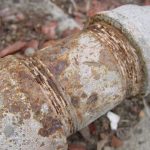Let’s face it, plumbers, like many contractors, almost seem to have their own language, and making yourself understood can be a real challenge. When it comes to technical terms, like risers, traps, and flanges, most of us are nonplussed. In this article, we will not have space to teach you all the plumbing terminology, but we will give you three tips on how to help your plumber and make yourself understood.
- Get Straight to The Source of the Problem
Some of the issues that a plumber has to deal with are “sensitive” in nature, and this is especially true when it comes to the bathroom. When you have a plumbing problem in this area, it’s a great idea to get to the point. It’s tempting to skirt around the issue to try and salvage some pride and maintain decorum. But, a plumber has seen pretty much everything, and they are not going to judge you for something they have encountered many times before.
2. Sound Out the Noises
This may seem silly, but many common plumbing issues have an accompanying sound. This is great because your local certified plumber will understand this audio clue, and they can get it fixed quickly. You may feel self-conscious making some of these sounds, but it’s a natural way to explain what’s happening. Here are some typical plumbing sounds and what they might mean.
- Ticking or Sputtering: This is usually a sign that there is air trapped in the pipes, and it’s escaping as you open your faucets.
- Gurgling or Burbling: When you hear this sound in the drain, there may be a drain clog forming.
- Whistling Pipes: This may be caused by an older valve or buildup of deposits inside your plumbing pipes.
- Banging or Hammering: This is a water hammer noise, and it’s caused by the pipes moving due to a buildup of pressure.
Strange noises emanating from your plumbing system are a sure sign that something is wrong. These problems will not go away by themselves, and they only get worse over time. It’s always better to act quickly and call your plumber sooner rather than later. A less serious issue is usually easier and less expensive to fix than a more extensive problem that has become worse over time.
3. Understanding the Basics
It takes years to become an experienced plumbing professional. But, there are things that you can learn about the plumbing system in your home. This knowledge could be helpful in an emergency situation when time may be critical. Find out if your home uses a septic tank or if it’s connected to the sewer. Learn where your water shut-off is located, and this will help you to minimize water damage if a pipe bursts. If you have a drain that’s prone to clogging, make sure your plumber knows about it when he starts looking for plumbing problems. All of this basic information can be a real time saver and help the plumber to get the system repaired quickly.
If you have a plumbing issue or need an inspection for your home, contact your local certified plumber today.
By Giovanni Longo President Flood Brothers Plumbing
Giovanni Longo is a 3rd generation master plumber who has been practicing his craft and trade in the greater Los Angeles area for well over a decade and a half. A plumbing and hydraulics-engineering innovator, Giovanni’s particular world-class expertise focuses on dealing with challenging sewer system designs as well as resolving complex commercial and residential draining issues. As a certified Flood Mitigation expert, he is also well versed in a wide variety of water damage and remediation solution.





